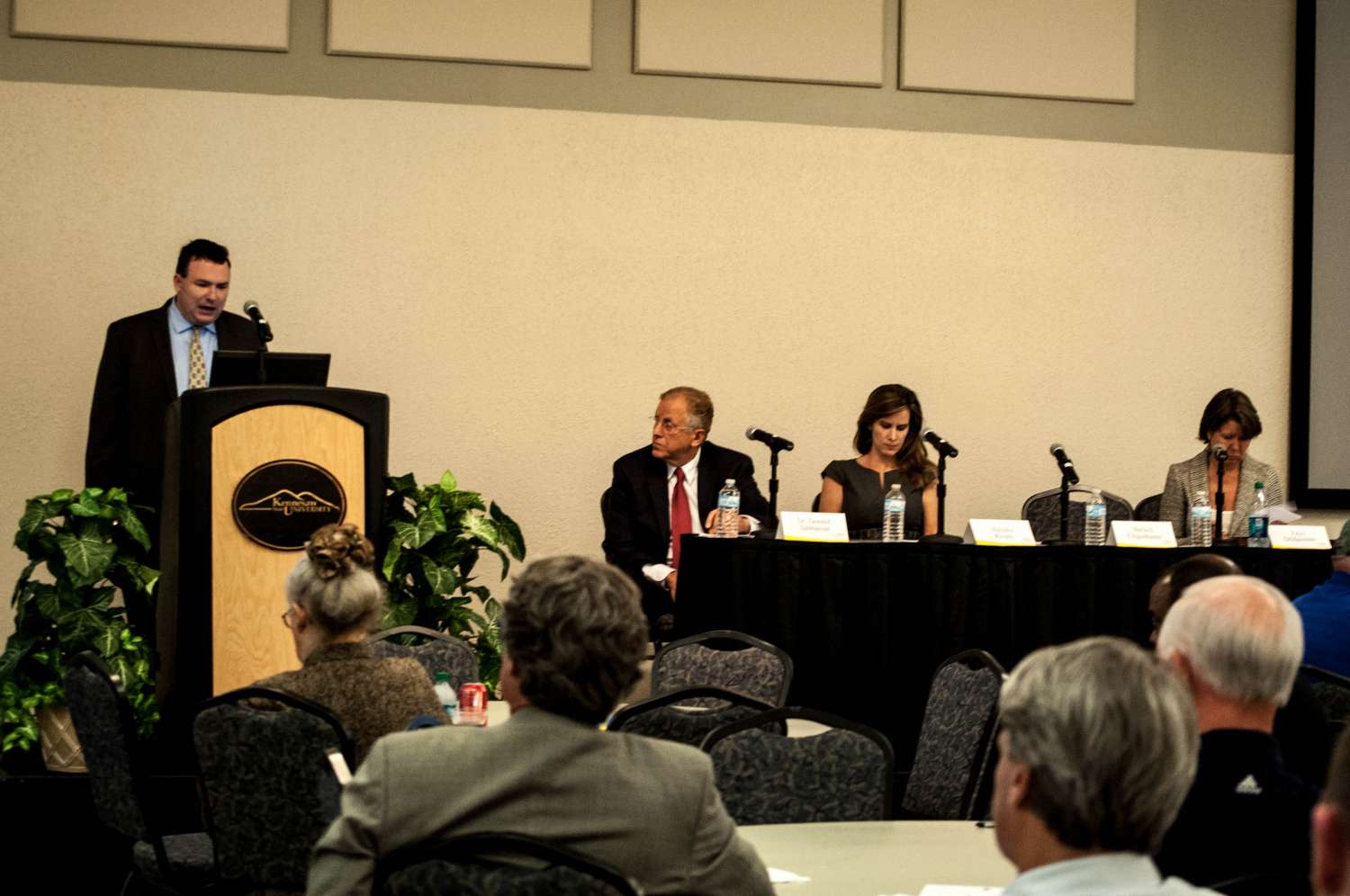The Department of English has announced new expansions to its minor in linguistics.
The department will add several new classes to the existing minor, which began this semester.
Those classes include: Semiotics and Literary Studies, Linguistics for Education, Introduction to Language and Linguistics, History of the English Language, Grammar of Contemporary American English and Sociolinguistics
Dr. Chris Palmer, director of Undergraduate English Studies and Dr. David Johnson, professor of English, sat down with The Sentinel to share their thoughts on the new program.
Why do professors believe the Linguistics Minor will help students advance in the workplace?
Palmer: When we’ve done alumni surveys — or even just heard back from individual students who graduated with an English major from our department — we repeatedly hear that they wished they could have taken more linguistics coursework when they were at KSU.
Often the reason stated is that linguistic content was much more relevant to their jobs than they had anticipated. I had one student, for example, who was hired to be on a marketing team for a firm. He had taken my politics and language class, and he said that the books we used for that course were the ones he still went back to the most when trying to decide which language would be most effective for advertising different products.
He even used corpus linguistic techniques — i.e. looking at patterns of words in huge databases of texts, a method we teach in several of our linguistics courses — to make pitches at meetings about which words his company should use and which they should avoid based on their frequency in the databases and those words’ positive and negative connotations.
The Linguistic minor video stated it can benefit students going into politics, screenwriting or teaching. It would help students with word choice and dialect — is there anything else you would like to mention?
Palmer: I’d just emphasize that the most successful writers and people in politics are those that are savvy about language choices. All writers need a good ear for dialect, as it can signal distinctness in voice as well as authenticity of characters and settings.
The politicians who get elected tend to be those that code-switch between dialects most fluidly — those who know when to sound standard and when to sound non-standard/vernacular. If you think about the presidents who were able to get elected in recent decades — George W. Bush, Bill Clinton, Barack Obama and Donald Trump — all of them have had that ability to use non-standard regional English to signal that they are one of the people, regardless of how wealthy or elite they actually are.
And gender differences should be noted here, too — because men and women have different social pressures in their use of dialect. Women tend to be expected to use standard English far more than men are in professional environments. This isn’t fair, of course, but it’s just a pattern sociolinguists tend to notice again and again. Differences in gendered speech are something we talk about a good bit in our sociolinguistics courses.
Johnson: Yes, I agree that people working in politics and marketing need to be very aware of language choices. Dr. Palmer gave examples of presidents. Let me throw out these examples.
George W. Bush took criticism when he said “misunderestimate” and Barack Obama received similar criticism when he used the word “enormity.” There were many who thought those were not “real” words.
What’s interesting is that Dwight Eisenhower was criticized when he said “finalize,” but now no one thinks of this as a “non-word.” I guess what I’m trying to do is echo Dr. Palmer’s ideas that politicians and their staffs must be very attuned to language. And it’s not just on the national level. Local politicians need “language” people who can help craft speeches or strategies that help campaigns.
Knowing and understanding what words might be “loaded” words is important. Dr. Palmer mentioned several tools that help “language” people, working in a number of fields, to do their job. I think there will be jobs that we can’t really envision, which will require linguistics backgrounds.



